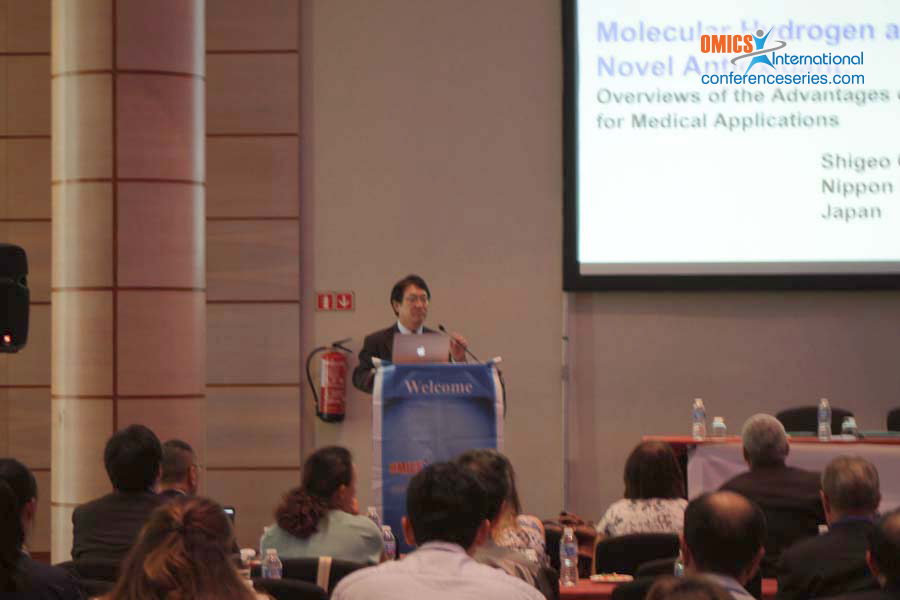
Shigeo Ohta
Nippon Medical School, Japan
Title: Molecular Hydrogen as a Novel Antioxidant: Overviews of the Advantages of Hydrogen for Medical Applications
Biography
Biography: Shigeo Ohta
Abstract
Molecular hydrogen (H2) has been accepted to be an inert and non-functional molecule in our body. We overturned this concept by demonstrating that H2 reacts with strong oxidants such as hydroxyl radical and peroxynitrite inside cells, and proposed its potential for preventive and therapeutic applications. H2 has a number of advantages exhibiting extensive effects: H2 rapidly diffuses into tissues and cells, and it is mild enough neither to disturb metabolic redox reactions nor to affect signaling reactive oxygen species; therefore, there should be no or little adverse effects of H2. There are several methods to ingest or consume H2; inhaling H2 gas, drinking H2-dissolved water (H2-water), injecting H2-dissolved saline (H2-saline) and so on. The numerous publications on its biological and medical benefits revealed that H2 reduces oxidative stress not only by direct reactions with strong oxidants, but also indirectly by regulating various gene expressions. Moreover, by regulating the gene expressions, H2 functions as an anti-inflammatory and anti-apoptotic, and stimulates energy metabolism. Recently, we have shown that hydrogen inhalation during normoxic resuscitation improves neurological outcome in a rat model of cardiac arrest independently of targeted temperature management. In addition to growing evidence obtained by model animal experiments, extensive clinical examinations were performed or are under investigation. Owing to its great efficacy and lack of adverse effects, H2 has promising potential for clinical use against many diseases.


